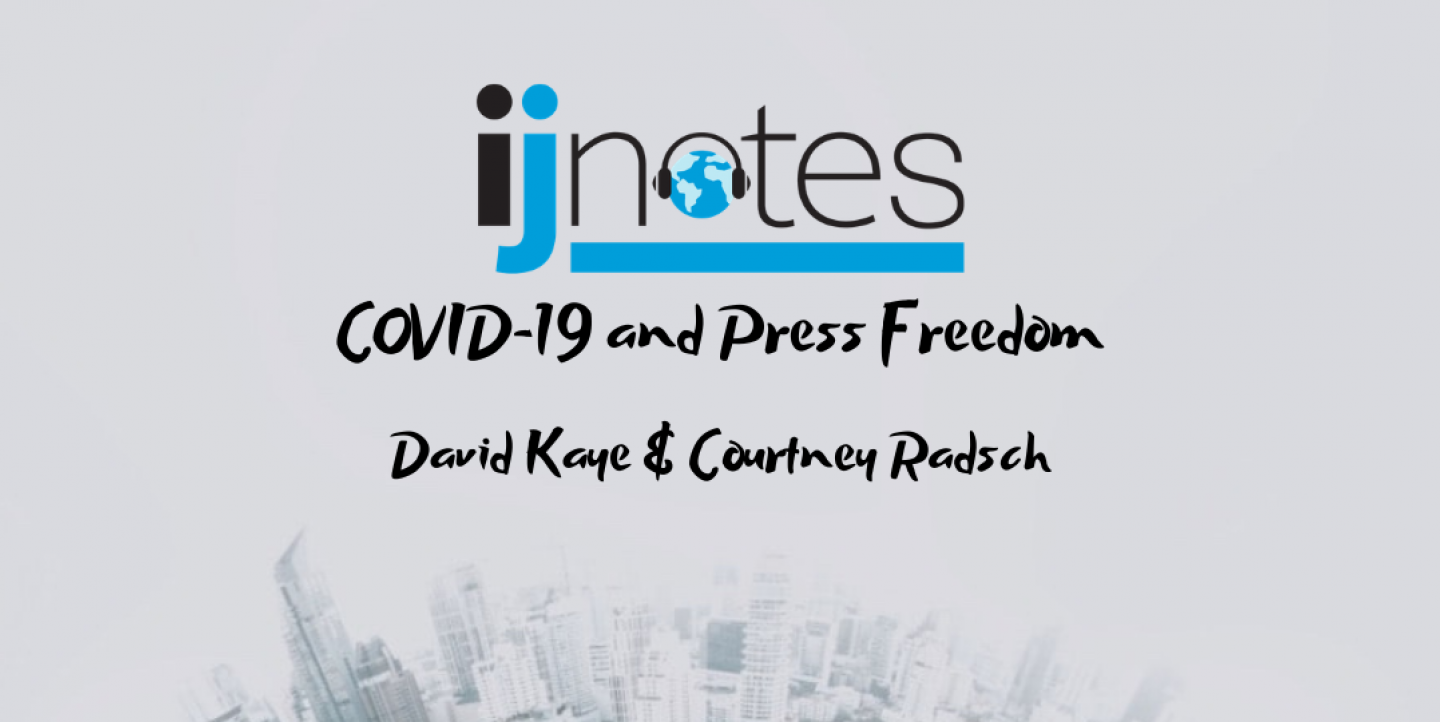This article is part of our online coverage of reporting on COVID-19. It was adapted from a webinar as part of the ICFJ and IJNet Global Health Crisis Reporting Forum, which you can view here.
Journalists today are adapting to the challenges of reporting on COVID-19. In countries across the world, they're working long hours, conducting interviews remotely and taking precautions to protect their health.
As they do, they're forced to deal with another challenge to their work; one that has become more entrenched in the wake of the pandemic. Often under the guise of emergency protections, governments and corporations are enacting policies that threaten critical press freedoms, and the very nature of journalists' work alongside.
Physical and political attacks on journalists, the criminalization of their reporting, restrictions on free access to information and increased surveillance have become only more commonplace around the world.
In our latest podcast episode, we explore these challenges and how we should respond: ICFJ Global Director of Research Dr. Julie Posetti interviews Prof. David Kaye, UN special rapporteur on the promotion and protection of the right to freedom of opinion and expression, and Dr. Courtney Radsch, advocacy director at the Committee to Protect Journalists.
Listen below:
We’ll let you know on our Twitter, Instagram and Facebook pages when we release our next episode, so make sure to follow us there if you haven't already.
All episodes will be available on Apple Podcasts, Spotify, Stitcher, Buzzsprout, TuneIn and SoundCloud.
Main image CC-licensed by Unsplash.


